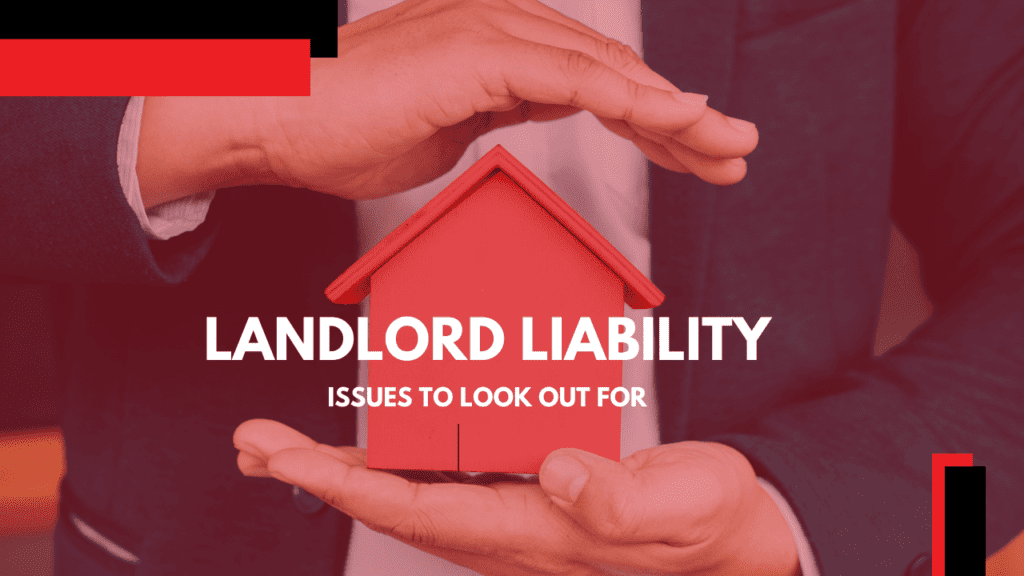
Renting out a property comes with a lot of liability. You’re providing a home for people to live in, and that means it has to be safe and habitable. If a tenant or their guest gets hurt while in your rental home, you can expect there will be a claim and likely a lawsuit.
That’s not the only risk.
You need to know the laws that pertain to rental property in Tampa and the surrounding areas. Federal laws like the Fair Housing Act need to be followed, and you also need to know the eviction process and the security deposit laws in the state of Florida.
There’s liability when you choose a tenant. What if you’re selecting the wrong resident? They might look good on paper, but what if they move in and stop paying rent? What if they damage your property?
We’re talking about some of the most common landlord liability issues to look out for when you’re renting out a property, and how you can avoid any unnecessary risk.
Renting Out a Safe and Habitable Property
Uneven staircases without handrails. Mold. Faulty wiring. All of these things can cause big problems for your investment property and a lot of liability for you as the landlord.
Don’t even list your rental property until you know it’s safe, habitable, and move-in ready. Do a complete inspection so you can be sure there aren’t any hazards or safety issues. Make sure all of the doors and windows lock easily and open and close without too much effort. Check that there’s enough outside lighting and that there aren’t any bushes or trees blocking the front of the house, particularly the windows. Test smoke alarms and carbon monoxide detectors. Inspect plumbing and electrical systems.
When tenants make a repair request, respond to it as quickly as you can. If you let your property fall into disrepair while tenants are living in it, you’re opening yourself up to a lot of liability.
Choosing Vendors to Maintain Your Investment
Perhaps your regular tree trimmer or house painter cannot get the work done right away or their rates have increased significantly. It’s tempting to hire a guy with a truck who claims he can do whatever you need.
Tempting – but unwise.
Make sure you’re only working with vendors, contractors, and service providers who are licensed and insured. If you hire unlicensed workers that you don’t really know, you’re taking on a lot of liability in a number of ways:
- You don’t know what kind of work they’re doing. Having a preferred network of maintenance workers is important because they know your property and you know their quality. Hiring an unlicensed worker could lead to big mistakes that cost you more to fix in the long term.
- You don’t know how they’ll treat your tenants. Your tenant retention plan and tenant satisfaction depend on sound maintenance policies. When a vendor you hardly know shows up and starts working and they’re rude to your tenants, it makes you look bad.
- They might get injured. Suppose that guy with a truck you hired falls off your roof. If he doesn’t have adequate insurance, you could be liable for his medical bills, lost wages, and any pain or suffering he can convince a judge or jury that he’s suffered.
Choose your vendors carefully. Make sure they’re licensed and insured, and don’t cut corners. You won’t save the money you think you’re saving.
Screening for Well-Qualified Residents
The wrong tenant is a huge liability for landlords.
Make sure your tenant screening process is on point. It starts with an established set of rental criteria. You want to hold every applicant to the same screening standards, otherwise, you could find yourself violating fair housing laws. Put together standard criteria that every potential tenant will have to meet in order to be approved for your property. You’ll want this criteria to address:
- Income standards (three times the monthly rent is an industry best practice).
- Credit standards (you can establish a minimum credit score).
- Eviction history and whether you’ll consider residents who have evictions on their record.
- Criminal background and history.
- Rental history (you may want to talk with current or former landlords to ensure the tenants paid rent on time and took care of your property).
Get to know the people who may be moving into your property. Not only do you need a thorough screening process, but you also need to collect personal information such as former addresses, social security numbers, and government-issued ID. Make sure what you collect matches what you find on the background reports.
A well-qualified tenant reduces your liability as a landlord. An unqualified tenant only increases it.
Pay Attention to State and Federal Laws
 We mentioned the Fair Housing Act. You also must comply with the Americans with Disabilities Act (ADA). Do you know the difference between a pet and a service dog? Do you know the difference between a service dog and an emotional support animal?
We mentioned the Fair Housing Act. You also must comply with the Americans with Disabilities Act (ADA). Do you know the difference between a pet and a service dog? Do you know the difference between a service dog and an emotional support animal?
If you don’t know these differences, you’re setting yourself up for some potential legal liability. For example, you cannot charge a pet fee for a service or support animal.
You need to understand Florida’s security deposit laws, too. There are specific requirements for where you hold the deposit and what you can deduct when you return it at the end of the lease term.
If you cannot stay up to date on all the state, local, and federal laws that pertain to your rental property, you need to partner with a property manager who can protect you from pricey legal mistakes and keep you and your property in compliance.
To effectively reduce the amount of liability you take on as a landlord, you need to have a good insurance policy in place, and you may want to consider using an LLC or other entity. You need to understand the importance of solid tenants and good tenant relationships. You also need to collect rent on time, respond right away to maintenance issues, and make sure you surround yourself with licensed and insurance vendors.
Working with a Tampa property management partner is always the best way to reduce your risk and enjoy a pleasant and profitable rental experience.
We’d love to tell you more about that. Please contact us at Hoffman Realty.
